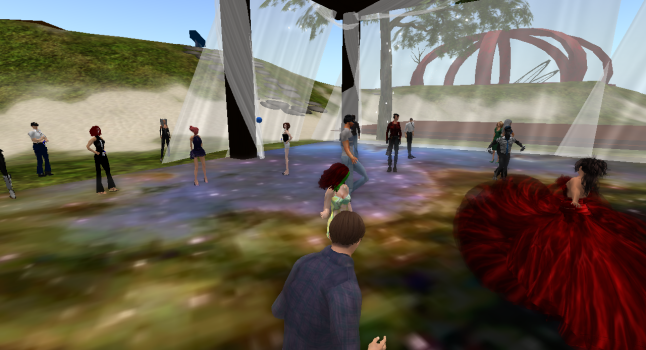
Since Google announced that they were shutting down their Google Plus social platform by end of next summer, organizers of OpenSim-related communities on that platform have begun searching for an alternative.
Google Plus was particularly attractive for OpenSim users since it allowed avatar names, a welcome alternative to Facebook’s real names policy. Plus, Google Plus offered many sharing options that made it simple for users to use it to spread the word about their grids, events, and content.
Since there are many alternatives out there, the key to success will be getting a critical mass of users and communities moved onto the new platform.
Here are the current leaders.
MeWe
MeWe is a social network, something like Facebook, designed around privacy. It launched in 2016, so doesn’t have much of a track record, but it does have mobile apps, and all the features that the OpenSim community needs. You can share photos, videos, documents both privately and in public groups. And even though it’s new, the platform already supports more than 60,000 public groups.
The biggest name in Google Plus OpenSim communities — OpenSim Virtual — already has a MeWe presence. Join OpenSim virtual on MeWe here. You do have to create a new user account, but, once you do, you can use it to access all the MeWe communities.
Leighton Marjoram is a member, as is Nara Malone, Sunbean Magic, Mal Burns, and other big names in the OpenSim space.
The Adult Metaverse also has a group on MeWe. Also check out Metaverse Authors.
Unfortunately, I can’t see a way for the public to access the OpenSim Virtual MeWe community without first registering and signing in. That makes it hard to share posts with the general public and on other social media.
Judging by the FAQ, that might be a design feature of the platform: “…there is no way to boost anything on MeWe, you can be assured that your posts are shared only with members you connect with.” If that is, in fact, the case then MeWe won’t be particularly useful as a channel to promote OpenSim discussions, events, and other content to new people.
Reddit has had an OpenSim board for quite a while, but, with just 136 members as of this writing, it hasn’t had much uptake. It’s more of a home for technical discussions and gripes rather than a fully-featured social platform.
On the other hand, the boards can be open to the public — you don’t need to be a member of Reddit in order to read posts.
Diaspora
Diaspora is the most famous of the decentralized social networking platforms. Everyone can have their own site, on their own servers. That’s a plus, for community leaders who want full control over the content on their site. There’s no central site to shut down. So it’s more like social networking software, that allows you to create your own social network, than a social network of its own.
The downside is that there’s no big central platform that a lot of people are already using. Plus, if you want to start a community, you have to be ready to run a server.
Mastodon
Another decentralized option where everyone can host their own social network but still connect to those hosted by others. Downsides are the same as with Diaspora — no central community, need to be able to run a server.
Alan Tupper says he’s been using for nearly a year, and recommends it to OpenSim users.
Friendica
Friendica is another decentralized option where everyone can host their own social network but still connect to those hosted by others. Downsides are the same as with Mastodon — no central community, need to be able to run a server.
Shelenn Ayres recommends it here.
Discord
Discord is more of an alternative to Skype rather than a social network of its own. It is popular with gamers for voice chat. Leighton Marjoram writes about how it’s being used for education here. Nara Malone, of the Nara’s Nook grid, has a Discord site.
Do you have another platform to recommend? Please email me at maria@hypergridbusiness.com or share in the comments below.

Source: Hypergrid Business

